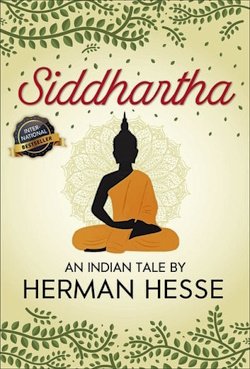1.
David Hume. A Treatise of Human Nature, Ed. L. A. Selby-Bigge. Oxford: Clarendon Siddhartha: An Open-Source Text
53
Chapter 5. Kamala
2. Compare Siddhartha’s characterization of magic with the Taoist doctrine of wu wei or the doctrine of “nonaction”: being the flow of circumstance so effortlessly that one need not force anything in order to achieve a result. Compare the phenomenon of the “purpose tremor,” when one “
tries too hard” or is overly careful.
Is there any pathological condition in which the patient, in trying to perform some voluntary act like picking up a pencil, overshoots the mark and goes into an uncontrollable oscillation? Dr. Rosenblueth immediately answered that there is a well-known condition, that is called purpose tremor. . . 2
3. Why is it easy for Siddhartha to obtain clothes and money? How is it that he can act “without traces” with respect to these things?
Press, (1888) 1964. I, iv, 6, 251-253.
2.
N. Wiener. Cybernetics, or Control and Communication in the Animal and the Machine.
Cambridge, Mass: MIT Press, 1948. 8.
54
Siddhartha: An Open-Source Text

Chapter 6
With the Childlike People
Official, Library of Congress
From the reading. . .
“Everyone takes, everyone gives, such is life.”
Ideas of Interest from “With the
Childlike People”
1. What does Siddhartha mean when he states, “I can think. I can wait. I can fast”? Explain the consequential abilities entailed in each assertion.
2. Why does Siddhartha speak of himself in the third-person? I.e. , Siddhartha says, “. . . Siddhartha can wait calmly, he knows no impatience, he knows no emergency. . . ”
55
Chapter 6. With the Childlike People
3. When Siddhartha arrived in the village after the rice harvest had already been sold, why was it good business, in spite of Kamaswami’s protesta-tion, that Siddhartha remain in the village for a while and become friends with the people?
4. What was the one factor that separated Siddhartha from the childlike people?
5. In Siddhartha’s business with Kamaswami and in Siddhartha’s love for Kamala, there was “giving and taking.” For Siddhartha, there was only meaning and passion for Kamala. Did Siddhartha therefore envy the childlike people for their imposing meaning and passion on the giving and taking in everyday events?
6. What is the nature of inner refuge that Siddhartha and Kamala possess and the childlike people do not possess? Is this the reason that Siddhartha and Kamala cannot love, whereas the childlike people can love? Is the
“inner refuge” a kind of authentic self that the childlike people in their superficiality lack?
The Reading Selection from “With the
Childlike People”
Siddhartha went to Kamaswami the merchant, he was directed into a rich house, servants led him between precious carpets into a chamber, where he awaited the master of the house.
Kamaswami entered, a swiftly, smoothly moving man with very gray hair, with very intelligent, cautious eyes, with a greedy mouth. Politely, the host and the guest greeted one another.
“I have been told,” the merchant began, “that you were a Brahmin, a learned man, but that you seek to be in the service of a merchant. Might you have become destitute, Brahmin, so that you seek to serve?”
“No,” said Siddhartha, “I have not become destitute and have never been destitute. You should know that I’m coming from the Samanas, with whom I have lived for a long time.”
“If you’re coming from the Samanas, how could you be anything but destitute? Aren’t the Samanas entirely without possessions?”
“I am without possessions,” said Siddhartha, “if this is what you mean. Surely, I am without possessions. But I am so voluntarily, and therefore I am not destitute.”
“But what are you planning to live of, being without possessions?”

























